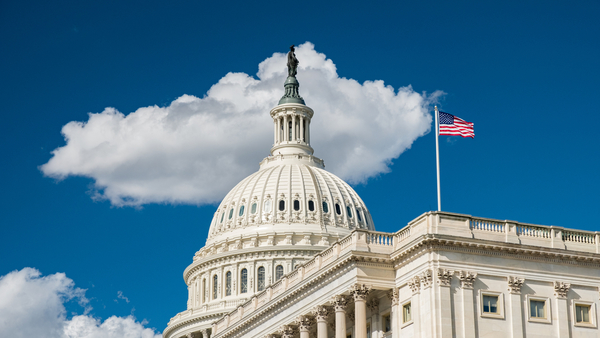
A credit union president told a House subcommittee Thursday that the CFPB’s powers are so broad that actions by the agency have contradicted policies set by the NCUA, the primary regulator of credit unions.
The CFPB has used its discretion to take action under its Unfair, Deceptive, Abusive Actions or Practices to “send credit unions mixed messages regarding prudential regulator guidance and to create new law,” Rick Nichols, president/CEO of the River Region Credit Union of Jefferson City, Mo., told the House financial institutions subcommittee.
Subcommittee Chairman Blaine Luetkemeye (R-Mo.) said that the Financial Services Committee is considering several bills that would tailor rules to the size of a financial institution.
“Washington does not know best,” he said.
But subcommittee ranking Democrat William Clay of Missouri said he is willing to support legislation to better tailor rules, but ruled out endorsing any legislation that would create loopholes for large financial institutions.
The House already has passed legislation that would overhaul the Dodd-Frank Act and the Financial Services Committee also is considered bills that would make smaller changes.
Nichols, whose credit union has $198 million in assets and testified on behalf on the Heartland Credit Union and CUNA, said that his financial institution is being burdened by rules designed to rein in abuses by large banks.
Nichols, said that in a recent enforcement action against a credit union, the CFPB said it was an unfair practice when it froze members’ account access and disabled certain electronic services after consumers became delinquent.
He said that several NCUA legal opinions conflict with that finding, adding that the agency does not prohibit restricting the availability of certain services.
“Creating new requirements through enforcement actions, particularly when they conflict with longstanding statutory precedent, is extremely concerning to credit unions,” he said.
He also accused the CFPB of using its UDAAP authority consistent with “its ideological goals, despite no evidence of harm to consumers.”
He cited the agency’s proposed payday lending rules as being harmful to credit unions interested in offering alternatives to traditional payday loans.
“As a result of the tidal wave of new regulations coming out of the financial crisis, credit unions like mine – as well as small banks – are forced to operate in a regulatory environment that is rigged in favor of the largest financial institutions.,” Nichols said.
Regulations have kept credit unions, such as River Region from lending at pre-crisis levels, he said.
He added that while he supports the goals of the Equal Credit Opportunity Act and the Fair Housing Act, the laws place “lenders in jeopardy of frivolous litigation because of creative legal arguments created by plaintiffs’ firms.”
Nichols said that the CFPB has the power to exempt “any class of covered entity” from its rulemaking, adding that despite the urging of members of Congress, the agency has been unwilling to do so.
“If the CFPB remains unwilling to use this authority fully, Congress should enact legislation to clarify that credit unions are exempt from CFPB rules unless the Bureau demonstrates credit unions are causing consumers harm,” he said.
But another witness, Scott Astrada, director of federal advocacy at the Center for Responsible Lending, disputed the notion that over-regulation was hurting credit unions financially.
“Credit unions have…continued to grow while recovering from the financial crisis,” he said, adding that credit union membership has been steadily growing.
He said that operating costs have fallen since the enactment of Dodd-Frank.
And he endorsed the policies of CFPB Director Richard Cordray.
“Under the leadership of Director Cordray, the CFPB has issued and proposed rules that make the market safer for consumers and the general economy,” he said.


